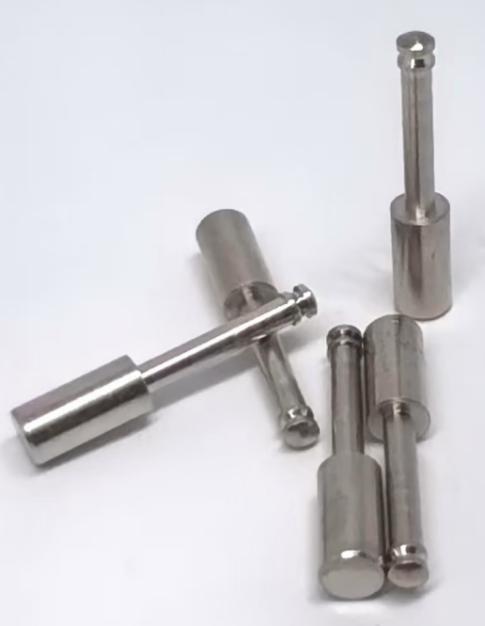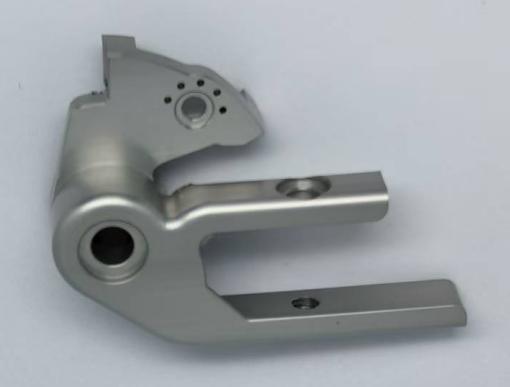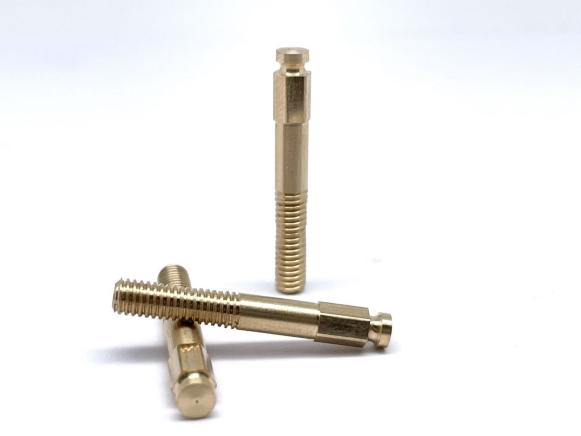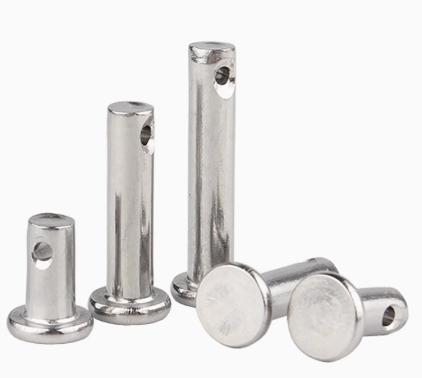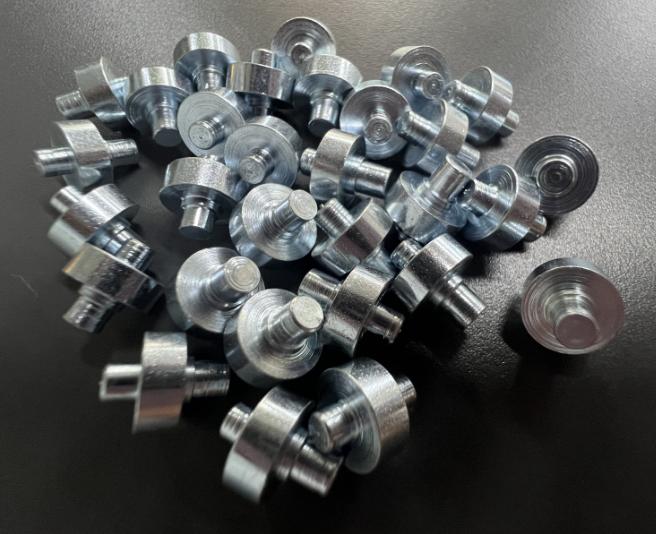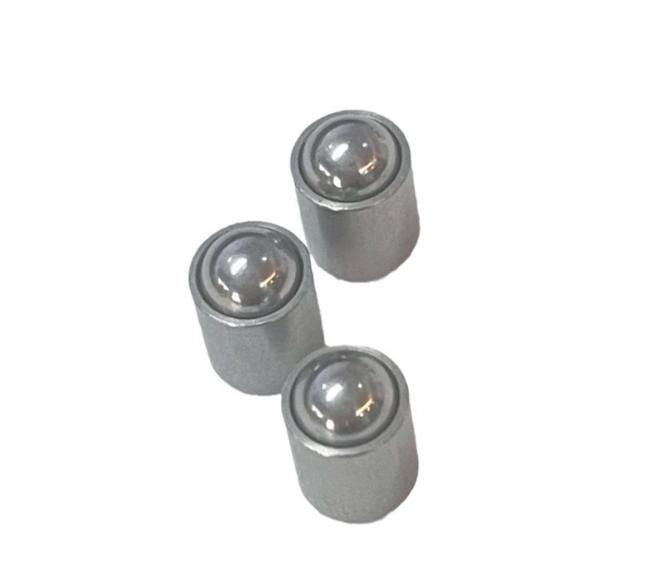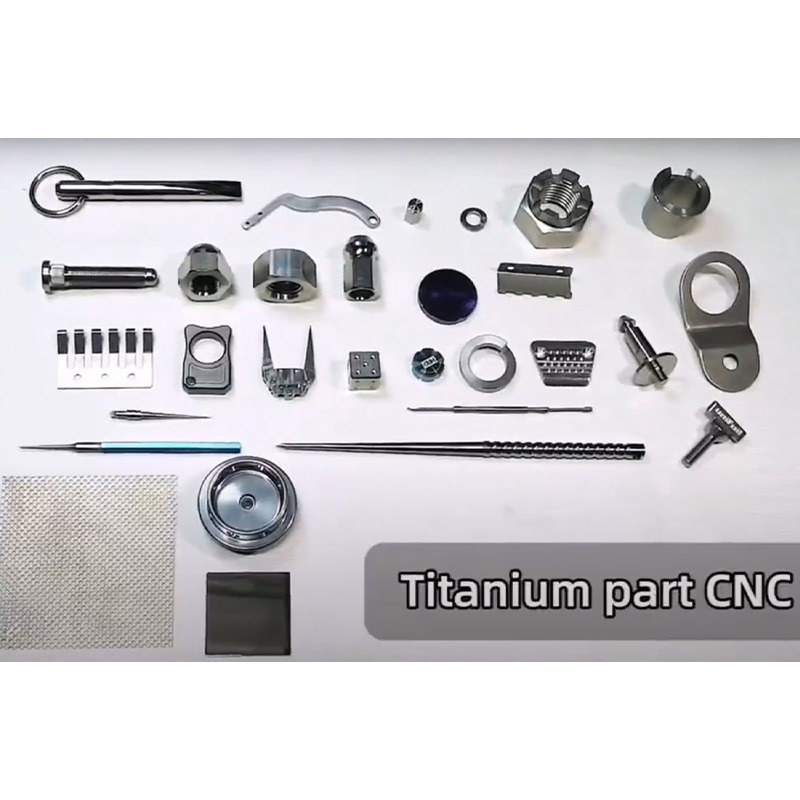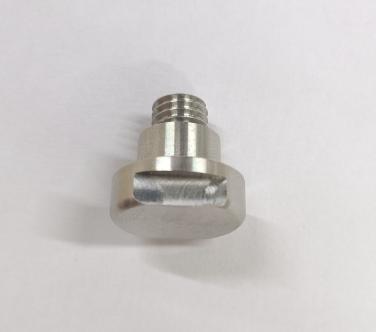CNC Precision Machining Parts: 6 Key Points You Need to Know
In today’s manufacturing, CNC precision machining parts are a core element of high-end equipment and life-critical systems. CNC (Computer Numerical Control) machining technology provides the solution that meets these stringent standards in aerospace, medical equipment, automotive and automation industries.
Here, in this article, we provide a comprehensive overview of CNC precision machining parts, their definition, materials used for their production, application areas and technical advantages as well as how to select an ideal supplier.
Table of Contents
Part 1. Understanding CNC Precision Machining
Because it has high automation, high flexibility, and a high processing capacity, CNC precision machining is now an essential technology in modern manufacturing. Compared with traditional machinery tools, CNC machines have more advantages:
1. High Precision: Accuracy at the level of a micron
CNC machining allows for very precise processings, such as complex shapes; accuracy depends on the computer- controlled tool path. The precision provided is ±0.01mm or even higher.
Key Benefits: Ensures dimensional precision and correct assembly for high-performance parts, thus ideal for application in the aerospace and medical device industries.
Typical Uses: Curved surface micro-machinings, micro-holes, and intricate designs that traditional processes cannot make.
2. High Efficiency: Made for Batch Production
CNC machines drastically boost productivity by automating tool movement and machining sequences with programed commands, increasing tool movement efficiency and increasing machining output.
Key Benefits: Capable of performing multiple operations within one setup, this solution offers minimal downtime and maximum throughput – ideal for medium to high-volume production environments.
Typical Uses: Automotive parts, consumer goods, and other high-volume products with tight lead times required.
3. Great Automation Level: Reduces Human Error
CNC machining automates the entire process—workpiece clamping and tool change to actual cutting—under minimizing manual intervention and opportunity for operator error.
Key Benefits: Offers repeat quality and consistency batch to batch, a requirement for high-quality control businesses.
Typical Uses: Medical devices, precision optic components, and other applications demanding high repeat accuracy.

4. High Flexibility: Quick Response to Individual Specifications
The programmable nature of CNC machines provides quick retooling through modifying code to accommodate different shapes, sizes, or materials.
Key Benefits: Allows multi-variety, small-lot production without mold change or retooling.
Typical Uses: New product prototyping and manufacturing customized parts.
5. Wide Processing Range: Capable of Complex Structures
CNC equipment, especially 5-axis machining centers—can work on simple turned and machined components and many different advanced 3D shapes such as angled bores and complex contours.
Key Benefits: Suitable for multiple materials (metals, plastics, composites) and able to satisfy multiple structural and functional requirements.
Typical Uses: Turbine blades, robot joints, medical implants, and other multi-surface, multi-angled parts.
These advantages have made CNC precision machining a support column to emerging manufacturing, and it allows high-quality, efficient, and multifunctional production. For mass industrial application or custom, high-added value products, CNC technology has no peers in reliability and competitiveness.
Part 2. What are CNC Precision Machining Parts?
CNC precision machining components are metal or plastic components created on computer numerical control (CNC) machinery such as lathes, milling machines and 5-axis machining centers with very precise tolerances, uniformities and complex geometries that meet industry specifications for production tolerances, uniformities and complex geometries.
Such components find wide use across industries that demand precise tolerances with regard to dimensions, uniformities and complex geometries.

A few of the prominent characteristics of CNC precision components are as follows:
1. High Dimensional Accuracy
CNC machining provides superior accuracy, with tolerances typically falling within +-0.01mm or even tighter depending on material and machine capabilities. This enables parts to be produced to accurate engineering tolerance for assembly into higher-level structures.
2. Excellent Repeatability
CNC machines possess excellent repeatability due to controlled systems and minimal tolerance, enabling them to produce the same part in high volume with minimal batch-to-batch variation.
Repetition is also very important in aerospace, automotive and medical equipment industries where identical performance and safety is paramount.
3. Complex Geometries
CNC machining can produce parts with intricate shapes, multiple angles and surface details. Advanced multi-axis machines like 5-axis CNC centers allow combined motions that produce parts with undercuts, curved surfaces or other geometries which would be difficult or impossible to machine conventionally.
4. Customizability & Rapid Prototyping (RPT)
CNC precision parts are ideal for custom production. Utilizing 2D drawings or 3D CAD data, these CNC machines are capable of easily producing prototypes or full production runs that meet customer requirements precisely – an adaptability which makes CNC an excellent solution for low-to-medium volume orders as well as design modifications.

Part 3. Generally Used Materials for CNC Precision Machining Parts
CNC precision machining can handle a very broad selection of materials ranging from metals to plastics for various industrial applications. CNC machining material of choice is usually determined by performance requirements such as strength, corrosion resistance, heat stability, electrical conductivity and machinability.
The following are the detailed accounts of most typical materials in CNC precision machining:
1. Aluminum Alloys
- Typical Grades: 6061, 7075, 5052
- Key Features: Low weight, good machinability, good corrosion resistance, and high thermal conductivity.
- Applications: Used widely in aerospace components, electronics housings, UAV components, and automobile components due to their strength-to-weight ratio and heat dissipation capability.
2. Stainless Steel
- Typical Grades: 304, 316, 303, 17-4PH
- Key Features: High corrosion resistance, good strength, and fair machinability (especially 303).
- Applications: Applications are medical equipment, food equipment, sea components and high humidity application areas where corrosion protection is an absolute requirement.
3. Carbon Steel
- Typical Grades: 1018, 1045, A36
- Key Features: High cost-effectiveness, hardness, and tensile strength; easy to weld and heat-treat.
- Applications: General application in mechanical frames, fixtures, machine parts, gears, where strength and wear resistance are the basic requirement.
4. Brass / Copper
- Typical Grades: C360 (brass), C110 (copper)
- Key Features: Good corrosion resistance, very high electrical and thermal conductivity, and brass is very easy to machine.
- Applications: Connectors, terminals, heat exchangers, plumbing fittings, and decorations.

5. Titanium Alloys
- Typical Grades: Grade 2, Grade 5 (Ti-6Al-4V)
- Key Features: Extremely high strength-to-weight ratio, corrosion resistance, and biocompatibility.
- Applications: Aerospace structural parts, medical implants, marine and high-performance automotive parts are just some of the numerous applications of aluminum castings.
6. Tool Steel
- Typical Grades: D2, A2, O1
- Key Features: High Hardness and Wear Resistance with Heat Treatability Capability.
- Applications: Moulds, dies, cutting tools and wear-resistant mechanical parts are some of the numerous applications of thermoplastic materials.
7. Engineering Polymers (Plastics)
- Delrin (POM): POM is a good material with low friction and hardness that is used in bushings and gears, and automobile parts.
- PEEK: Resistant to heat and chemicals, aerospace and medical and semiconductor applications.
- PTFE (Tielfon): Chemical resistance and low friction, suitable for seals, gaskets and chemical-handling components.
- ABS / Nylon / Polycarbonate: It is an economical material, easy to machine and prototypable, encasement and low-stress mechanical applications.
All these materials enable the CNC machining companies to meet various engineering and industrial specifications. In selecting the material for CNC machining, strength, cost, surface finish, conformity to regulations, and use environment should be considered.
Part 4. Application Fields of CNC Precision Machining Parts
Due to their precision, dependability, and material versatility, precision machined parts by CNC are widely used in a huge variety of high-performance industries. The below is a more detailed description of major application areas:
1. Aerospace Industry
Aerospace failure occurs even with slight dimensional discrepancies. CNC-machined components are trusted for their very tight tolerances and high-strength materials.
Common Parts: Structural brackets, turbine blades, engine casings, landing gear components, and airframe fittings.
Requirements: High precision, lightweight materials (like aluminum and titanium), endurance to the highest temperature and pressure environments, as well as stringent compliance to aviation specifications are among our requirements.
2. Medical Devices
Medical devices demand utmost reliability and safety. CNC machining offers the facility of production of complex, biocompatible parts with perfect repeatability.
Common Parts: Surgical instruments, orthopedic devices (such as bone screws and plates), pump casings, dental components and diagnostic device components are among the most frequently found components.
Requirements: High surface finish quality, biocompatibility (stainless steel, PEEK and titanium), sterilization compatibility and micron-level dimensional accuracy were the most important requirements.
3. Automotive Manufacturing Facilities
Automotive manufacturing relies nearly exclusively on CNC machining for prototype building and manufacturing and guarantees high performance, reliability, and accuracy in dynamic operating conditions.
Common Parts: Engine components (valves and pistons), transmission components, suspension/steering links, mounting brackets and interior hardware are some of the more frequently occurring parts.
Requirements: Consistent high-volume performance, wear resistance, cost-effectiveness and suitability for automation systems were prime requirements.

4. Industrial Automation & Machinery
Automation systems rely on custom-fit mechanical components designed for long-term operation. CNC machining meets these challenges efficiently and reliably.
Common Parts: Common components include robotic arm joints, linear guides, pneumatic manifolds, gearboxes, mounting bases and sensor housings.
Requirements: Requirements call for custom designs with high strength-to-weight ratios and long-term durability that is compatible with assembly systems.
5. Communications & Electronics
CNC machining has become essential to meeting the increasing demands for 5G and IoT technologies, producing tiny yet accurate components with high frequency performance requirements.
Common Parts: 5G modules require housings, heat sinks, RF connectors, shielding components, and precision brackets to function effectively.
Requirements: Requirements: Producing small part tolerances of minutes for precision products with optimal thermal management (e.g. aluminum and copper alloys) and high-speed assembly line compatibility.
CNC precision machining enables all these industries to produce high-performance products with stringent form and functional control, from aerospace components to electronic elements. Every piece made by this technology adheres to exact specifications ensuring innovation and operational excellence across industries.
Part 5. How to Select a Dependable CNC Precision Machining Part Supplier?
The selection of a stable CNC precision machining supplier is the most important thing in delivering product quality, production effectiveness, and long-term collaboration. Not just can a professional supplier possess more sophisticated equipment, but also stable quality, fast response, and timely delivery.
When seeking for a potential CNC machining supplier, the following main factors should be examined carefully:
1. Machining Capability and Equipment
The technical ability of the supplier has a direct impact on the complexity and precision of the parts they can produce. Pay close attention to:
State-of-the-Art Equipment: See if the suppliers possess top-of-the-line CNC machines such as 5-axis machining centers, mill-turn machines, wire EDM, and surface grinders. These machines offer capability in handling complex geometries and close tolerances.
Material Efficiency: Check that the supplier is equipped to work with aluminum, stainless steel, titanium, brass, carbon steel, and even engineering plastics like PEEK and POM.
Part Difficulty: Inquire whether they manufacture intricate components with undercuts, multi-surface machining, or tight tolerancing.
2. Quality Control System
A reliable vendor must possess a quality assurance system to maintain uniformity and avert defects. Some of the important indicators are:
Certifications: Check for recognized quality management certifications such as ISO 9001, ISO 13485 (medical), or AS9100 (aerospace).
Inspection Capabilities: Check whether they provide detailed inspection records. Also, see if they hold detailed inspection recordes like FAI (First Article Inspection) reports and CAD drawings.
Traceability and Documentation: Confirm that all components possess production records, and quality history that can be traced.

3. Customer Support and Service
A customer-focused supplier will save you time, reduce risks, and facilitate long-term collaboration. Look for the following:
Prototyping and Customization: Does their company provide rapid prototyping, simple design modifications and one-on-one engineering consultation services?
Technical Support: Does their engineering staff offer DFM (Design for Manufacturability) comments and offer problem-solving support?
Export Preparation: Before selecting an export buyer, buyers should evaluate whether their service provides export documentation, customs clearance support and international shipping solutions.
Communication Effectiveness: Engage them to have an effective sales or support structure that communicates both effectively and in a timely fashion.
4. Lead Time and Delivery Capacity
A key element of supply chain reliability is delivery performance. You should consider:
Production Scheduling: Can they provide precise, reliable production dates based on real capacity, and not loose estimates?
Flexible Delivery: Do they handle urgent orders or flexible batch sizes without generally impacting lead times?
Logistics Efficiency: Do they have effective shipping partners, and can they get secure, timely delivery to areas?
An effective CNC precision machining supplier should combine technical capability, quality control rigor, customer-oriented service and operation efficiency into one package. By taking the time now to assess these criteria, you will set yourself up for long-term mutually beneficial partnerships while preventing expensive issues down the road.
Part 6. KENENG: High-Quality CNC Precision Machining Part Provider
As a specialized precision CNC machining plant, KENENG offers customized, high-precision CNC machining parts with the backup of years of experience and mature production system. We are committed to offering stable, efficient, and scalable machining solutions to global customers across all industries.
We offer one-stop CNC precision machining solutions, including CNC turning, milling, drilling, tapping, etc. All sorts of materials from stainless steel, aluminum alloys, brass, and titanium alloys are included in our scopes. From rapid prototyping to mass production, we ensure stable lead times, high quality assurance, and competitive prices for CNC precision machining parts.
Why choose KENENG?
- On-hand we possess state-of-the-art precision equipment with tolerance up to +0.005mm for greater accuracy.
- Widest range of material selection
- Strict quality control
- Prompt response and personalized service

Summary
With increasing demands for smart and customized manufacturing, CNC precision machined parts will become ever more in demand. Finding a trustworthy machining service provider ensures greater quality control and market competitiveness.
No matter what precision manufacturing project you need completed, contact KENENG and begin your precision journey today!

